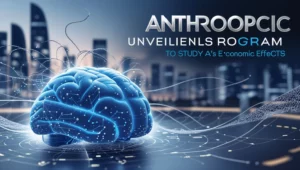Microsoft has officially banned its employees from using the DeepSeek app, citing concerns over data security and potential exposure to Chinese government propaganda. The announcement came during a Senate hearing on May 8, where Microsoft vice chairman and president Brad Smith disclosed the company’s internal policy regarding the AI-powered chatbot service.
Smith stated that DeepSeek is not allowed on company devices and is excluded from Microsoft’s app store due to risks associated with its data storage practices and content moderation policies. According to DeepSeek’s own privacy documentation, user data is stored on servers in China and falls under Chinese jurisdiction, which includes mandatory cooperation with state intelligence services. Additionally, the app reportedly censors topics deemed sensitive by the Chinese government.
While many organizations and governments have already imposed restrictions on DeepSeek, this marks the first time Microsoft has publicly confirmed its stance. Smith expressed concerns that DeepSeek’s responses could be influenced by propaganda and that the platform poses potential cybersecurity vulnerabilities.
Despite these warnings, Microsoft previously made DeepSeek’s R1 model available through its Azure cloud platform after the model gained popularity. However, Smith emphasized that hosting the model for developers differs from endorsing or distributing the official app. As an open-source tool, DeepSeek’s model can be downloaded and run independently, allowing developers to manage their own deployments without routing data through Chinese servers.
Still, risks remain. OpenAI and other experts have noted that open-source models can produce misinformation or insecure outputs if not properly managed. During the hearing, Smith claimed Microsoft engineers had modified the model to reduce “harmful side effects,” but declined to provide specific technical details.
Microsoft’s decision raises questions about content governance in app ecosystems, especially since competing AI chat tools like Perplexity remain available in its Windows app store. Apps developed by Google, including its Gemini chatbot and Chrome browser, were notably absent during a search of Microsoft’s store.
The move reflects growing scrutiny around AI tools originating from China, particularly regarding how data is handled and how outputs may be shaped by state-influenced narratives. Microsoft’s stance highlights the increasing intersection of geopolitics, AI, and corporate responsibility in technology.













